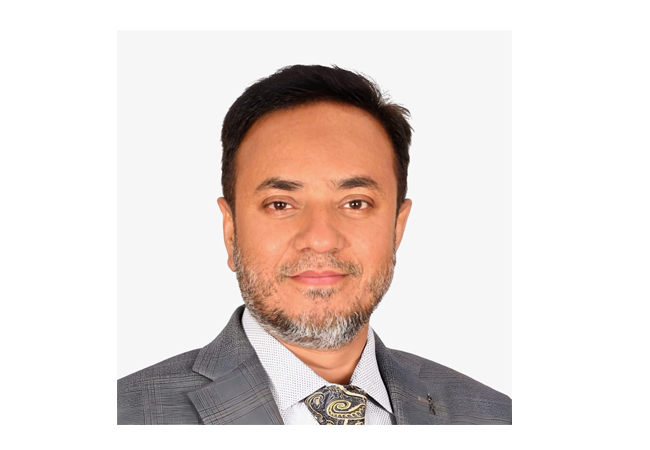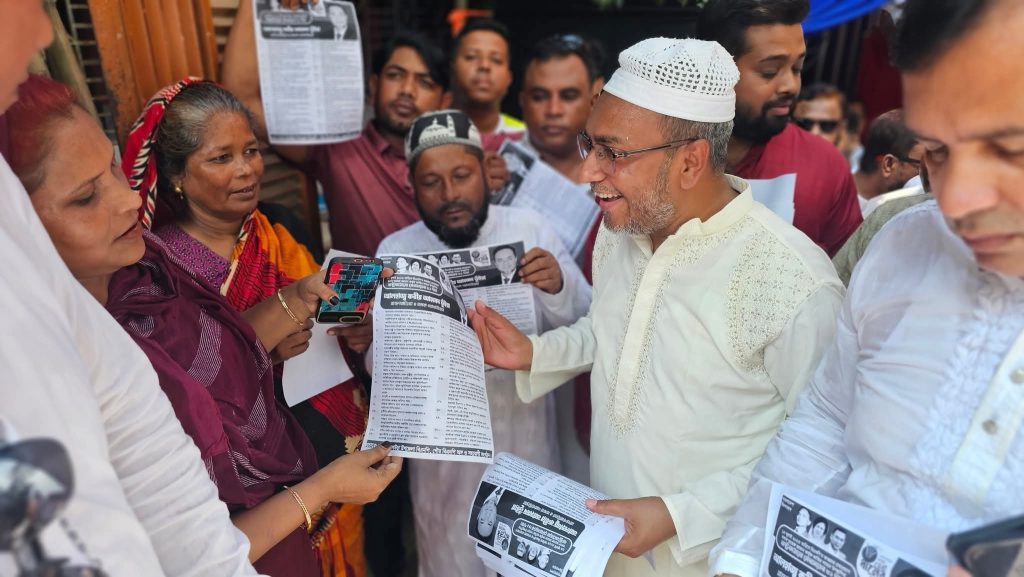

Jahidul Jahid, Business Correspondent: The BNP’s nomination process in Brahmanbaria-4 (Kasba–Akhaura) has sparked intense controversy, with party insiders and grassroots leaders alleging the influence of a powerful syndicate that emerged after the political upheaval of 5 August. Local leaders claim that the nomination of Mushfiqur Rahman—whom they describe as “inactive” and absent from politics for nearly two decades—has been engineered by a Dhaka-centric group seeking personal gain.
Popular Leader Kabir Ahmed Bhuiyan Left Out
For over a decade, Alhaj Kabir Ahmed Bhuiyan has been regarded as the most influential BNP figure in the constituency. Widely credited for maintaining organizational continuity through years of political repression, Bhuiyan built strong grassroots networks, mobilized large gatherings, and remained active in supporting families affected by alleged disappearances, killings, and politically motivated cases.
Given this sustained presence, his nomination was considered almost inevitable. Yet the BNP’s Gulshan office unexpectedly selected Mushfiqur Rahman, a Canada-based retired bureaucrat reportedly in his 90s, who local leaders say has not been involved in constituency-level politics for 17 years.

Alleged Dhaka-Based Syndicate Behind the Shift
According to multiple BNP insiders, the nomination reversal was the result of an orchestrated push by a six-member syndicate of Dhaka-based aspirants. They allegedly ran a campaign to sideline Bhuiyan, fueled by significant financial transactions estimated by local leaders at nearly Tk 50 crore.
Party sources assert that the group lobbied senior BNP leaders in the capital by presenting inflated projections of Mushfiqur Rahman’s local support and running a coordinated messaging drive titled “Stop Kabir Bhuiyan.”
Some members of this alleged syndicate, locals claim, previously maintained cordial ties with former Law Minister Anisul Huq and participated in political programs alongside him—an allegation strengthened by documents and images circulating on social media.
Crisis Within the Local BNP
BNP’s organizational structure in Kasba–Akhaura has long been considered one of the party’s strongest in Brahmanbaria. From ward to upazila levels, committees were formed through open voting in structured conferences, which shored up the party even during periods of heavy repression.
Under the tenure of Anisul Huq, BNP activists in the area faced numerous cases, arrests, and alleged disappearances. Local leaders credit Kabir Ahmed Bhuiyan for sustaining the organization during these difficult years and for carrying forward Tarique Rahman’s 31-point reform message and Khaleda Zia’s calls for restoring democracy.

Candidate Fitness and Public Doubts
Mushfiqur Rahman’s advanced age and health have become major topics of public discussion. In recent campaign events, he has been seen falling asleep on stage, struggling to stand without assistance, and traveling with an emergency medical team in tow.
These visuals—widely shared across social media—have prompted concerns among voters about his ability to campaign vigorously or serve actively if elected. Younger voters in particular say his long absence from the area and bureaucratic demeanor feel disconnected from the political expectations of the post-August era.
Fear of Losing the Seat to Jamaat
With internal divisions widening, Jamaat-e-Islami appears to be gaining ground in the constituency. Several BNP grassroots organizers warn that unless the party swiftly reassesses its candidate choice, Jamaat could win the seat with little resistance.
Jamaat activists have already begun circulating satirical content mocking Mushfiqur Rahman’s frailty. Local BNP members stress that although the party symbol carries weight, the candidate’s personal credibility and physical presence now play a decisive role—especially after the restoration of competitive voting.
A Test Case for BNP’s National Strategy
The unfolding dispute in Brahmanbaria-4 has raised broader questions about BNP’s internal decision-making and its readiness for a competitive national election. As the party positions itself for a return to power, many local leaders argue that sidelining a strong grassroots figure like Kabir Ahmed Bhuiyan could prove costly, not only for the constituency but for the party’s national momentum.
